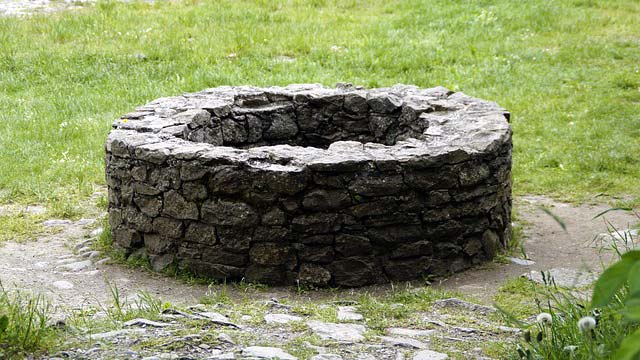A water well, as you might expect, is a hole or long shaft that goes deep to the ground. It’s very important to find an experienced engineer to manage the project. If you’re considering the purchase of land for your dream home, you’ll want to understand the benefits of a water well and why you might want one on your property.

Making the Well
Constructing a well is not as easy as it might seem. First, a proper location has to be selected. Both the amount and purity of the water will need to be evaluated. Not only that, the site should be closer to the area where water is needed so that less money is spent on canals.
It is better if a knowledgeable driller chooses the location. The water needs to be clean enough for drinking purposes, industrial purposes, and agricultural purposes. The boron and sodium absorption ratio should be within healthy limits. There are many but you’ll want to use one of the highly-rated water test kits.
A large well, which might be needed for agricultural purposes, requires a high pumping rate. The pumping rate of a well should be 500 to 4000 gallons per minute (GPM). Small wells, which are known as community wells, produce 100 to 500 gallons per minute (GPM). Wells used domestically for water usage in houses should have a pumping rate of 1 to 5 gallons per minute (GPM). Pumping rates also have to be calculated by professional drillers.
The most important consideration to look upon for drinking and irrigation water production wells is groundwater quality and long-term supply. To reach the groundwater level, wells have to be dug to the property depth. Don’t dig too deep or unwanted minerals will be present. Experts will often recommend a water filtration system to partner will your water well system.
Benefits to Reap After Building a Water Well
Water is essential for life. There are many uses for water in your home including drinking, washing, cooking, and sanitation. Heck, you might want water for that giant fish tank you’ve always wanted. It’s difficult to imagine a home without running water.
Once upon a time, pristine waterways covered the Earth. Today we have contamination from sewage waste, pharmaceuticals, and industries runoff. We must appreciate the perks of rural living, which include an unlimited supply of clean water from wells. Let us look into the benefits of building a water well and actually using it for our own well-being.
1. Safe from Adverse Effects
Public water is also used for drinking purposes. To make water clean it must be treated with low-dose chemicals, disinfected with chlorine and it must be heavily filtered. Chlorine is highly dangerous for our body, and should not be consumed very often. When pollutants and water treatment chemicals become airborne through steam whilst in the hot shower, they enter our lungs and that can be more harmful than drinking it. Water from a well is free from chemicals and bacteria, making it much healthier and safer to drink.
2. Save Money on Landscape Watering
The cost of installing water wells is often worth the initial cost over time. The money saved on the water bills can even cover the cost of drilling in just a few years. Water bills can be 10 times lower than they were before the well was built.
3. Water Wells Are Private
The benefits of a water well are more than saving money. Consider if there’s an emergency and the water supply is cut off. Your well water will still be available. You can use it for yourself or even water plants that would otherwise die. If plants die from heat, it will cost you more money to replace them rather than water them. Owning a water well makes you far less dependent on the principality that provides water for your area.
4. Other Health Concerns
Keeping chlorine and other pollutants aside, the health controversy surrounding water fluoridation is under discussion and leads to many health problems. When looking for the best place to place the well consider the mineral properties as well. These minerals can be beneficial for human and plant health.
5. Water in Remote Areas
For some very remote areas, having a water well might be your only option. In these situations, the investment of putting in a well will almost always be worthwhile. Water is essential for life. Just consider how you might try to live without it. If your land is a long way from a municipal water supply then building



